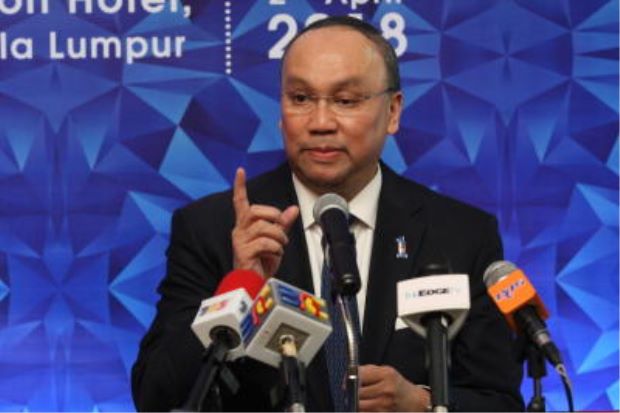The going gets tough for MBSB
PETALING JAYA: The going gets tough for the Employees Provident Fund’s majority-owned Malaysia Building Society Bhd (MBSB), as the bank provisions for higher expected credit losses (ECL) amid a subdued loan growth in the first quarter of financial year 2019 (1Q19).
Against the backdrop of slowing economic activities and the bank’s sharply lower earnings in the first quarter, concerns have risen about MBSB’s outlook in the upcoming quarters.
The financial institution’s net profit in the first quarter ended March 31 plunged by about 73.5% year-on-year (y-o-y) to RM83.83mil compared to RM316.79mil in the previous corresponding quarter.
The sharp dive in profitability was a result of the higher ECL of RM153.02mil in the first quarter.
MBSB’s revenue in the three-month period also fell 3.8% y-o-y to RM784.04mil compared to RM815.04mil a year earlier.
The banking group told the stock exchange that its higher ECL in the first quarter was mainly because 1Q18 had recorded a write-back as a result of staging improvement from stage two compared to stage one.
“Comparing the ECL of 1Q19 and 4Q18, the increase in ECL was mainly due to an unfavourable forecast of forward-looking macroeconomic factors applied to the household sector portfolio, which increased the lifetime ECL for the stage two impairment.
“In addition, the increase in ECL was due to higher non-performing financing from the household sector portfolio, which increased ECL for the stage three impairment, as well as higher ECL charges for corporate customers in stages one and two,” MBSB said in a Bursa Malaysia filing.
Stage one ECL includes financial assets that do not have a significant increase in credit risk since the initial recognition, or those which have low credit risk at the reporting date, while stage two includes financial assets that have a significant increase in credit risk since initial recognition but do not have objective evidence of impairment.
On the other hand, stage three ECL includes financial assets that have objective evidence of impairment at the reporting date.
An analyst told StarBiz that MBSB’s ECL is based on the requirements under the Malaysian Financial Reporting Standard 9 or MFRS 9.
Under MFRS 9, which took effect on Jan 1, 2018, all financial assets would count toward the computation of ECLs, and therefore, require provisioning from the first day of their origination, even if they are fully performing.
When asked whether MBSB’s higher ECL in the first quarter indicates a potential surge in delinquent and bad loans over the coming quarter, the analyst said “not really”.
“The ECL can be recovered. Part of the ECL is also the forward-looking perspectives, which accounted for at least a third of the ECL,” he said.
MBSB’s total gross loans, financing and advances in 1Q19 grew marginally by 0.7% y-o-y to RM35.44bil. The bank’s biggest loan segment, personal financing, declined 4% y-o-y to RM20.48bil, while auto financing fell 18.8% y-o-y to RM220.27mil.
However, corporate loans and financing rose significantly by 10.6% y-o-y to RM9.19bil. Property and mortgage financing also improved by 4.8% y-o-y to RM5.55bil.
“Business expansion in the corporate segment continued to improve the asset composition ratio between retail and corporate to 74:26 compared to 75:25 (4Q18), progressively moving towards the group’s target of 60:40 by year 2020,” MBSB said in a statement.
The net impaired financing ratio stood at 2.11% in 1Q19, compared to 2.39% in 4Q18. However, it has regressed compared to 1.82% in 1Q18.
According to MBSB group president and chief executive officer Datuk Seri Ahmad Zaini Othman, the bank registered stable growth in revenue and net operating income and still maintained a cost-to-income ratio of 26.34%, which is below the industry average.
“While the Malaysian economic condition remains challenging, we will remain focused on expanding our banking capabilities. With this, the bank’s technology transformation shall continue to take centre stage.
“On another front, we are also aiming to increase our fee income-based activities to make up 35% of income by end-2020,” said Ahmad Zaini.
MBSB’s net income in the first quarter was recorded at RM365.03mil, marking an improvement of 5.01% from RM347.63mil in 1Q18.
Group deposits rose 5.82% to RM34.7bil in 1Q19. The capital position remained strong, as the CET-1 capital ratio stood at 20.95% as at March 31, standing well above Bank Negara’s prescribed ratio of 7%.
Its liquidity coverage ratio stood at 228.18% in 1Q19, as compared to 210.33% in 4Q18.
Source: TheStar

